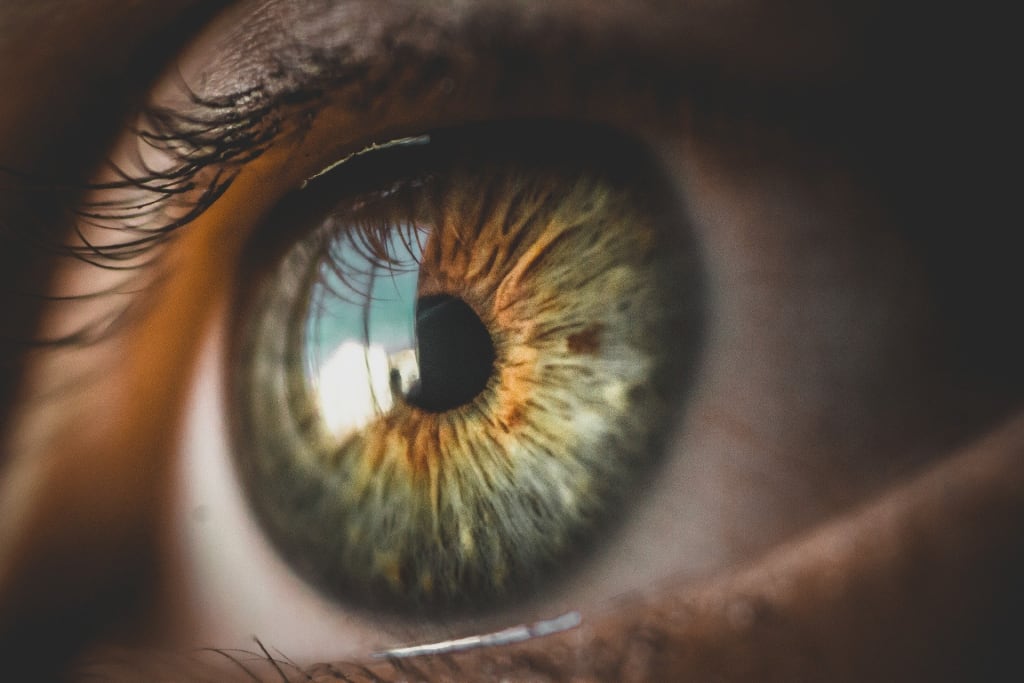What Are The Reasons for Eye Allergy?
How to get rid of it?

Eye allergies are a common problem. Many people are affected by this problem and often. This problem is more common on hot weather days, late spring and autumn. It is not very serious but it is very painful and annoying. If there is an allergy in the eyes, the eyes become itchy, red, and irritated. Many have tears in their eyes. There may be symptoms like coughing, sneezing, a runny nose, etc.
What is an allergy?
Allergies are caused by a type of immune system. If the body is very sensitive to any object, when that object comes in contact with the body, it becomes very red, swollen, itchy, watery, etc. The same reaction occurs in the eyes when an allergen comes in contact with the eyes. This is called eye allergy or conjunctivitis. But many people mistakenly call eye allergy another disease.
Many of us suffer from eye allergy problems. It is not a contagious disease, but a common disease. Allergic reactions usually do not go away. But it can be prevented. The task is difficult though.
Types of allergies
There are usually five types of allergies in our eyes.
Seasonal allergic conjunctivitis
1. Seasonal allergic conjunctivitis
2. Perennial allergic or conjunctivitis
3. Vernal keratoconjunctivitis
4. Atopic keratoconjunctivitis
5. Contact allergic conjunctivitis
6. Giant papillary conjunctivitis
1. Seasonal allergic conjunctivitis
This type of allergy is the most common. This type of allergy is more effective in certain seasons. For example, towards the end of winter. Allergens such as flower pollen, dust, etc. floating in the air come in contact with the nose or eyes, the eyes become red, itchy, sometimes swollen eyes, difficult to breathe through the nose, and coughing. People who suffer from this type of allergy get black spots around their eyes.
2. Perennial allergic conjunctivitis
This disease is seen almost throughout the year. This eye allergy is usually caused by contact with a mattress, blanket, Katha, etc. Its symptoms are more or less the same as seasonal conjunctivitis.
3. Vernal keratoconjunctivitis
The disease is more common in late winter. Young children are more susceptible to this disease. But with age, the risk of this disease decreases. This disease is difficult. Infected doctors' advice must be taken. Sometimes the disease becomes severe again. If not treated at the right time, eye stones can be injured.
Sight may be reduced. People who get this disease are at risk of getting asthma or skin disease. So regular treatment is required. Itching of the eyes, watery eyes, difficulty in looking at the light, and feeling as if there is something inside the eyes, are the symptoms of this disease.
4. Atopic keratoconjunctivitis
Older people are more likely to get the disease. People with pre-existing skin inflammation or dermatitis are more likely to get this disease. The disease can occur all year round. One of the symptoms of this disease is excessive itching, burning eyes, red eyes, difficulty opening eyes when waking up, and accumulation of dirt in the corners of the eyes. Therefore, if not treated in time, the cornea of the eye can be damaged.
5. Contact allergic conjunctivitis
People who usually use contact lenses in their eyes are more prone to this disease. In this case, as a side effect, the eyes become itchy and red, there is difficulty in using the lens, thick fluid may leak from the eyes, etc.
6. Giant papillary conjunctivitis
This is a type of contact allergy. But it is deadly. Symptoms of this disease are swelling of the eyes, itching, blurred vision, watery eyes, mucus from the eyes, and always something that seems to be stuck inside the eyes.
Hereditary people with a history of a high incidence of skin diseases are more susceptible to this disease than others. However, other eye problems can also be considered allergies. Eyesores, traumatic inflammation, etc. are not allergic problems.
It is better to prevent the disease before treating it. So to avoid eye allergies-
1. Avoid objects that cause allergies.
2. When you go out in the sun, you have to use sunglasses.
3. If there is hypersensitivity in any object or thing, it is necessary to get treatment.
Consequences of eye allergies
Allergy is a disease that may not be completely eradicated. So in most cases, there may be a lifelong allergy problem. However, as a child, he contracted vernal keratoconjunctivitis, and this problem goes away with age. In many cases, the upper eyelids become swollen due to allergic problems. The cornea of the eye is damaged and vision is reduced.
Many people use steroids for eye allergies. It cures allergies. But there may be other side effects. For example, glaucoma. Therefore, those who suffer from eye allergies after a while, should seek treatment from a specialist doctor and use the medicine.
Also, those who suffer from frequent eye problems should make some changes in their movement or lifestyle. For example: refrain from cleaning dust, stay away from pets and stop using harmful cosmetics. Allergies can also be caused by using eye lenses. In that case, it should be discarded as per the advice of the doctor.
Phone or computer screens should not be used too close to the eyes. Do not do work that puts pressure on the eyes. Above all, to keep the eyes well, the doctor's advice must be followed.






Comments
There are no comments for this story
Be the first to respond and start the conversation.